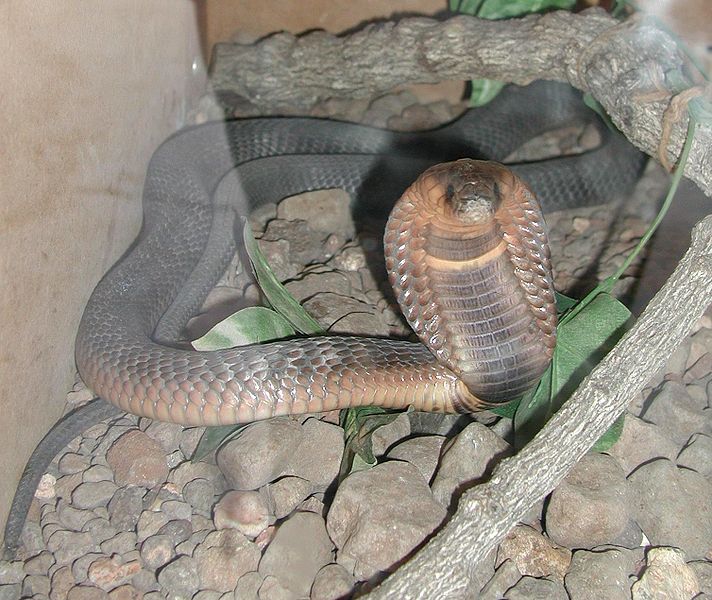Escaped Cobra Likely Hiding Inside Bronx Zoo

A venomous Egyptian cobra is missing from the Bronx Zoo, forcing a shutdown of the reptile house while zoo officials search for the animal.
However, New Yorkers can breathe easy: Bronx Zoo officials say they are "confident" that the 20-inch (50 centimeter) long serpent is curled up somewhere dark and warm in an isolated, nonpublic area of the reptile building. With temperatures in New York hovering in the 30s and 40s (about 0 to 4 degrees Celsius), the snake is not likely to venture outdoors, said Stan Mays, the curator of herpetology at the Houston Zoo, who spoke to LiveScience about the species.
"That's a little cold for it to be out," Mays said.
Egyptian cobras grow to be about 6 feet (2 meters) long, Mays said. The cobras are rodent-eaters and pack a deadly bite: Their venom is a neurotoxin that can kill a person.
"They're not really something you want to be bitten by," Mays said. He said the Egyptian cobras he's worked with are "pretty feisty," though they seem to mellow with age.
Bronx Zoo officials declined to speak to LiveScience about the missing snake. In a written statement, zoo director Jim Breheny said the cobra is hunkered down in the building somewhere it feels safe.
"When the snake gets hungry or thirsty, it will start to move around the building," Breheny said. "Once that happens, it will be our best opportunity to recover it."
Sign up for the Live Science daily newsletter now
Get the world’s most fascinating discoveries delivered straight to your inbox.
That could take time, Mays said. Snakes can go for months without eating and weeks without drinking. The Houston Zoo hasn't experienced any snake escapes, Mays said, but closing the building is "a wise precaution." The staff's best bet for finding the snake quickly, he said, is to patrol the building with a flashlight at night, when the cobra is more likely to move about.
If zoo staff has a good idea of where in the building the snake is, they could chill the area and set up a small heater nearby, Mays said. The warmth would draw the cobra out of its hiding spot. [Why We'll Always Fear Snakes]
Snake escapes aren't a common problem at zoos, Mays said. Reptile keepers do multiple lock checks to be sure snakes can't slither their way out of their enclosures, he added.
Amateur snake collectors aren't always so careful. In 2007, a Toronto man was sentenced to a year of jail time and ordered to pay a $17,000 fine after his Egyptian cobra got loose in a rented house. The house and its semi-attached neighboring home had to be evacuated for more than five months. Eventually, tenants moved back in, although the venomous escapee was never found.
You can follow LiveScience senior writer Stephanie Pappas on Twitter @sipappas.

Stephanie Pappas is a contributing writer for Live Science, covering topics ranging from geoscience to archaeology to the human brain and behavior. She was previously a senior writer for Live Science but is now a freelancer based in Denver, Colorado, and regularly contributes to Scientific American and The Monitor, the monthly magazine of the American Psychological Association. Stephanie received a bachelor's degree in psychology from the University of South Carolina and a graduate certificate in science communication from the University of California, Santa Cruz.










